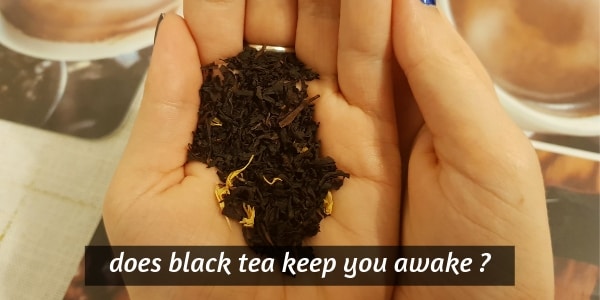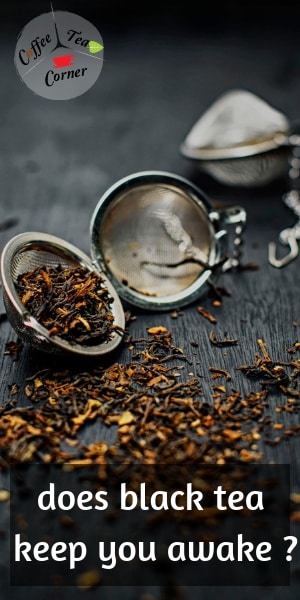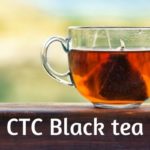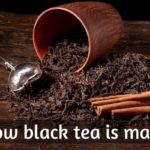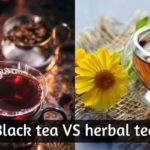Black tea is famous as a breakfast tea, or a a slight pick-me-up. But does black tea really keep you awake ? I for one do enjoy a cup of black tea, and I have to admit it's the most forgiving of tea when it comes to brewing.
Now let's see if black tea does actually keep you awake, enough to merit its breakfast tea status, or even coffee replacement for some.
Table of Contents
So does black tea keep you awake ?
Yes, black tea does keep you awake. All beverages with caffeine keep you awake. Black tea happens to have half the caffeine content of coffee beans. But, not all teas are the same and not all black teas are the same.
You could find black tea with 4% caffeine content, or with 1% caffeine content. The point is that black tea does have caffeine, and it acts a little differently in our bodies.
So if you're wondering why you're still up at 1 Am when all you did was drink 2 cups of black tea with milk, then you can be pretty sure it's the caffeine in the tea. Let me explain.
How much caffeine in a cup of black tea
I said the caffeine levels vary in tea. This is because where and how well the tea was grown will influence the caffeine level very much. In this case black tea can have anywhere between 40 to 120 mg of caffeine in 226 g of tea. That's 0.0014-0.004 oz of caffeine for 8 oz of brewed tea.
The amount of time you let your black tea steep will influence how much caffeine you get in your infusion, but only to a point. And not only that, but also the temperature of the water you use.
For example brewing black tea at 60 C/140 F for 2 minutes will give you a weaker brew in terms. If you were to let it sit for 5 minutes, it would be stronger, but still fairly weak.
The same amount of black tea, steeped at 90 c/194 F for 2 minutes will give you a stronger brew than the one we discussed before. Finally, a 90 C steep at 5 minutes will give you the strongest brew possible, both in terms of flavor and caffeine levels.
Another element that influences the caffeine levels if the youth of the tea plant. Black and green tea are made from the tea leaves, almost adult leaves. They lave less caffeine than very young tea leaves (known as tips), which are often used for white tea.
Black tea is rarely made of tips because those are very sensitive to heat and can turn the tea bitter very quickly. Still, some teas do include more tips in their composition. If your black tea contains them, it will have a higher caffeine content.
For reference, an average cup of brewed coffee (filter coffee) has about 150-200 mg of caffeine for 226 g of brew. That's 0.005-0.007 oz of caffeine in 8 oz of brewed coffee.
You'd have to drink a lot of black tea to stay up late
Exactly how much black tea would you have to drink to stay up late and actually be focused ? Well, that depends on a couple of factors.
First, the amount of tea leaves you put in your brew. More leaves mean more caffeine is released into your brew. You risk a bitter tasting brew if you overdo this, but if you have a high tolerance than this won't really matter.
For example the usual amount of black tea leaves for 226 ml/8 oz of water is 2 teaspoons. That's going to give you the 40-120 mg of caffeine in your brew, but you won;t really know if it's 60 mg, 100 mg, or just 41 mg before you brew the tea. Thea quality varies wildly from brand to brand.
Second, the way caffeine in tea works is different from caffeine from coffee. This is because tea is a bit easier on your metabolism, seeing as it will bond with the L-theanine elements released by your tea. This dampens the effects of tea caffeine in a way, and makes it release more slowly over a longer period of time.
In contrast a cup of coffee will go straight to your bloodstream and will also be out of your system quicker than tea caffeine. The usual half-life of coffee caffeine is about 4 hours.
That means it will take a healthy adult about 4 hours to eliminate half the caffeine content in his/her system. This can vary, taking into account illnesses, pregnancy, age, liver health, and so on.
So where one cup of filter coffee would do the trick for the next 4-5 hours, and give you jitters along the way in the first part, tea is different. You'd need 2 cups of strong black tea to match the caffeine in coffee. Or possibly 3 cups of your tea is very weak.
Do keep in mind that caffeine in black tea won't act like the caffeine in coffee. It won't feel like truck hit you and you won't get sweaty and jittery unless you're seriously overdoing it.
Tea's caffeine will wake you up gently, and you might not notice it at first. But it's there, and you'll only know you're calm and very much awake.
(If you like this article so far, you can pin it to your Pinterest board by clicking the image below. The article continues after the image.)
A couple of black teas you might love
The most famous black tea out there is always a breakfast tea. Not very surprising, seeing how black tea does contain enough caffeine to be considered a coffee substitute.
A breakfast tea can be any combination between various black tea types. It could be Ceylon, Assam, Darjeeling, in any percentage. Some are plain, as in just black tea. No other flavors, like this one here for example.
I recommend a loose leaf tea here, as I recommend for any tea actually. The full, loose leaf will give you the full, rounded flavor of the tea you're meant to drink.
Also the flavor keeps better in loose leaves, because they actually contain more flavor in the full leaf, than the usual bags which only contain crumbs of leaves.
For example this tea here is an Assam black tea, and it's wonderful as a breakfast tea. It will take very well to sugar and milk if you want to add any to your morning cup.
This is actually what is present in most breakfast teas, along with some Darjeeling or Ceylon black tea as well. Not only does it contain the caffeine to start your day, but it's also got a bold, strong flavor.
You can check the listing on Amazon here, and see the tea for yourself.
The thing about black tea is that it's amazing with sweet flavors. Like for example vanilla or very yellow fruits (like banana, mango, peach, pineapple, and so on) go wonderfully with a black tea.
Rose and caramel are a great addition too, and I've seen some rum-infused black teas out there. This is why many black teas often come in blended varieties.
I for one have to admit that a plain black tea is too strong for me, seeing as I'm after combinations of flavors more than a single (even if deep) note of a certain tea. Even my green teas are blended with something, at least jasmine or mint.
Here's a good example of a wonderful black tea with a few flavorings that pair nicely. It's a loose leaf black tea with mango, and it's a lovely combination.
For all accounts it doesn't really need sugar since its aroma will be sweet enough. It won't taste overly sweet, but it will seem sweet because of the mango added to the blend.
This is the kind of tea I would reach for often, and I think it would be wonderful as an iced tea as well as a hot tea. Just imagine a hot summer day with this tea and lots of ice, just lazing about in the sun.
You can check the listing on Amazon here, and see the tea for yourself.
Black tea comes in many different shapes and sizes when it comes to what kind of taste you want. This is the same reason Early Grey is such a popular blend with the general public (me included), since it's black tea with bergamot (a sort of orange) oil added to the leaves.
You can also find black tea in a very simple version, like smoked Lapsang. You'd have to love smokey flavors, but that kind of tea would be amazing if you were into that.
When's the best time to drink black tea
For the most part, any time is the right time. Except the evening. But I'm guessing you'd like to know this for some certain effects. If you're looking to replace your coffee, or at least cut down on it then you can start using black tea at the same hours you'd use coffee.
So this means in the morning, and possibly another round in the afternoon, seeing as black tea is easier on the system than coffee.
Don't worry, it'll still wake you up but you're going to feel different than with coffee.
If you're wondering when is the best time to drink black tea for health benefits, then there is no real best moment. Tea's antioxidants work very well be it night or day, so you'll get the full package no matter when you drink it.
The same goes for green tea and white tea as well. As a sidenote, white tea actually has more caffeine in it because its made entirely of tea tips. The ones that happen to have the most caffeine content. Again, it won't feel like a cup of coffee, but it will do the same job.
Final thoughts
Getting yourself a nice caffeine helping is completely possible with tea, it's just that is acts differently from coffee caffeine. This means that it won't feel like a sudden burst of adrenaline. More like a gentle but definite wake up call, with a slow release.
You'd have to drink double the amount of tea as you would coffee, to get the same amount of caffeine in your system. Using it as a breakfast stimulant is definitely alright, and it's actually preferred in some ares more than coffee.
If you want to know more about coffee or tea, feel free to check the related articles below. Who knows what else you might find ?

